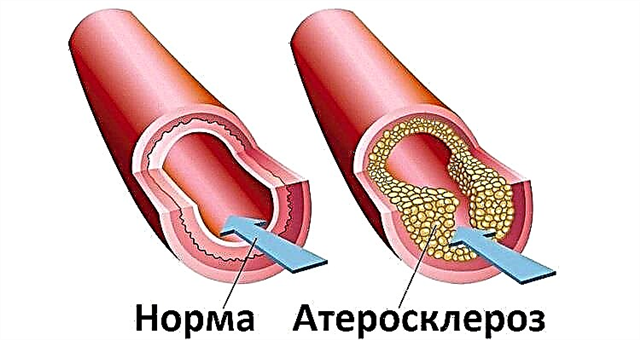The body has different ways of protecting itself from adverse environmental factors. One of them is coughing. This symptom makes it clear that not everything is in order with the body. Often people do not take coughs seriously and do not deal with this problem at all, expecting that bronchospasm will disappear on its own. This is what happens occasionally. But it happens that the cough constantly overcomes, and the attacks interfere with the normal functioning of a person for 30-60 days. Only then does a person begin to wonder what the problem is. This, unfortunately, is a belated reaction, because a chronic cough has time to develop over a given period of time. It will not be easy to cure it, in contrast to bronchospasm that occurs at the initial stage of the underlying disease.
Causes and treatment
 Cough is an accelerated exhalation through the mouth, which occurs as a result of contraction of the muscles of the respiratory system due to irritation of the mucous membrane. Its role is to cleanse the respiratory system from unnecessary minute substances and prevent impaired patency of the nasal passages. Chronic cough is usually called bronchospasm, which persists for 8 weeks or more. This painful symptom is accompanied by general weakness, excessive sweating, irritability, poor sleep and even urinary incontinence. Chronic dry cough is always a signal of the disease in an open or closed form.
Cough is an accelerated exhalation through the mouth, which occurs as a result of contraction of the muscles of the respiratory system due to irritation of the mucous membrane. Its role is to cleanse the respiratory system from unnecessary minute substances and prevent impaired patency of the nasal passages. Chronic cough is usually called bronchospasm, which persists for 8 weeks or more. This painful symptom is accompanied by general weakness, excessive sweating, irritability, poor sleep and even urinary incontinence. Chronic dry cough is always a signal of the disease in an open or closed form.
Bronchospasm can be caused by the following factors:
- Smoking. People with nicotine addiction often feel like clearing their throat without even having lung problems. The tar contained in cigarettes irritates the receptors and provokes a persistent dry cough. In the summer, it does not bother smokers so often, the exacerbation usually begins in the winter.
- Acute respiratory viral diseases. During the period of illness, the human immune system is weakened and unable to cope with its protective functions. Viruses penetrate the bronchi, and untimely treatment can lead to the development of chronic bronchitis. With a prolonged course of the disease, bronchial cells are deformed, and the disease develops into asthma, pneumonia or lung abscess.
- Pharyngitis is an inflammatory process in the mucous membrane of the pharynx, characterized by a constant cough with a characteristic sore throat. Treatment takes place in a hospital setting.
- Laryngitis is an inflammation of the larynx mucosa, manifested by a debilitating barking night cough.
- Tracheitis is an infectious disease that affects the trachea.
- Pleurisy is an inflammation of the membrane that surrounds the lungs. This disease is characterized by a prolonged cough with severe cramps, flank pain, shortness of breath, and fever.
- "Postnasal flow syndrome", which is caused by a runny nose. In chronic rhinitis and sinusitis, nasal discharge flows down the back of the pharynx into the trachebronchial tree, irritating the cough receptors. This is a dry type of cough, but bronchospasm may appear productive due to nasal mucus.
- Whooping cough. This disease often affects children, but whooping cough occurs in adults. Severe attacks of dry cough, sometimes with vomiting, disturb the patient at night, during the day the symptom is almost not manifested.
- Bronchial asthma is a dangerous disease accompanied by a chronic painful cough, attacks of suffocation with a possible fatal outcome.
- Pulmonary tuberculosis. It is characterized by constant coughing, followed by a strong dry or wet cough. It is accompanied by excessive sweating, high body temperature, chills and weight loss. For an accurate diagnosis of the disease, it is necessary to do fluorography.
- External irritants of the environment, industrial waste can cause a dry, prolonged cough, which is defined as an allergic one.
 Gastroesophageal reflux is a pathological process in the gastrointestinal tract caused by the reflux of stomach contents into the esophagus and then into the throat. The acidic environment is irritating and provokes a cough.
Gastroesophageal reflux is a pathological process in the gastrointestinal tract caused by the reflux of stomach contents into the esophagus and then into the throat. The acidic environment is irritating and provokes a cough.- Tumors of the mediastinum - the space between the spine and the sternum, affecting many important organs: the heart, aorta, bronchi, etc.
- Diseases of the cardiovascular system. Violation of blood circulation leads to vasospasm and causes a cough. It can worsen with physical exertion and torment with severe attacks during sleep. These are all signs of heart failure.
- Taking medications for hypertension and heart disease provokes bronchospasm in 5-20% of patients. A month after the withdrawal of cardiac drugs, the cough disappears.
- Ascaris worms. Their larvae spread through the circulatory system. Through the lungs, bronchi, trachea, they enter the upper respiratory tract, irritating the cough centers. Migration lasts up to 2 weeks, so bronchospasm occurs periodically.
This is just an incomplete list of diseases that can cause a cough. The spectrum of reasons provoking bronchospasm can be much wider. To establish the primary source of the disease, there are a number of functional tests that determine the cause of the pathology.
A persistent cough that lasts longer than 2 months is examined using computed tomography, and X-ray of the lungs is also widely used. Spirometry and bodyplethysmography are used for allergic coughs. With gastroenterological pathologies, fibrogastroscopy is used and the organs of the gastrointestinal tract are diagnosed under anesthesia. Do not delay visiting a specialist to avoid complications.
Antitussives
For the correct treatment of bronchospasm, it is first necessary to establish the root cause of the disease that accompanies the cough. Antitussive therapy depends directly on the diagnosis. So, if the cough is caused by an allergy, the patient is prescribed antiallergic drugs. With tuberculosis, treatment is long and difficult. If bronchospasm is caused by acute respiratory viral infections, then the main task is to transform a dry cough into a moist productive form and remove sputum from the body. With mucus, the infection is removed from the body, so doctors prescribe expectorant drugs.
Mucolytics, drugs that dilate the bronchi, and inhalations that moisturize the respiratory tract will be effective in the treatment of viral cough.
 Remedies for bronchospasm will help to significantly alleviate the patient's condition. All cough medicines are divided into three groups depending on the effect they have: mucolytic (for thinning and separating sputum), expectorant (for removing mucus) and antitussive (muffling a painful cough that does not perform its cleansing functions).
Remedies for bronchospasm will help to significantly alleviate the patient's condition. All cough medicines are divided into three groups depending on the effect they have: mucolytic (for thinning and separating sputum), expectorant (for removing mucus) and antitussive (muffling a painful cough that does not perform its cleansing functions).
For dry cough, drugs of central and peripheral action are used. The former muffle the cough reflex, acting on the cough centers of the brain. This group distinguishes between drugs of narcotic and non-narcotic action. The latter soften the mucous membrane and provide a local anesthetic effect, reducing the frequency of bronchospasm by acting on the sensitive endings in the respiratory mucosa.
Physiotherapy
Despite the data on the high effectiveness of chemical antitussive drugs, herbal medicines are increasingly being integrated into medical practice. However, natural ingredients are not always safe for the patient. The herbs used to treat coughs have different effects.So, licorice root has a pronounced laxative effect, which must be taken into account when drawing up a treatment regimen.
The disadvantages of phytotherapy include the lack of a guarantee of its effectiveness due to inappropriate growing conditions for medicinal plants, the complexity of their standardization, and the problem of obtaining extracts.
 First of all, the environmental conditions in which the raw materials were grown are important. Pesticides, heavy metal salts negatively affect the medicinal properties of the plant, which will be used as a medical material.
First of all, the environmental conditions in which the raw materials were grown are important. Pesticides, heavy metal salts negatively affect the medicinal properties of the plant, which will be used as a medical material.
Phytoneering is used to control the quality of such medicinal products. This is a rather complex process that contributes to strict adherence to the algorithm for growing and selecting raw materials, which excludes the ingress of toxic substances into the medicines produced. At all stages of the production of medicines, only certified technologies are used that prevent the loss of active components and a change in the chemical composition of the plant during its processing. Compliance with all these rules made it possible to ensure the high efficiency of herbal preparations, which not only are not inferior to synthetic drugs, but also surpass them in effectiveness.
Chronic cough requires complex therapy under the supervision of doctors. Do not delay treatment, as the consequences will be sad. Be attentive to yourself and take care of your health!

 Gastroesophageal reflux is a pathological process in the gastrointestinal tract caused by the reflux of stomach contents into the esophagus and then into the throat. The acidic environment is irritating and provokes a cough.
Gastroesophageal reflux is a pathological process in the gastrointestinal tract caused by the reflux of stomach contents into the esophagus and then into the throat. The acidic environment is irritating and provokes a cough.

